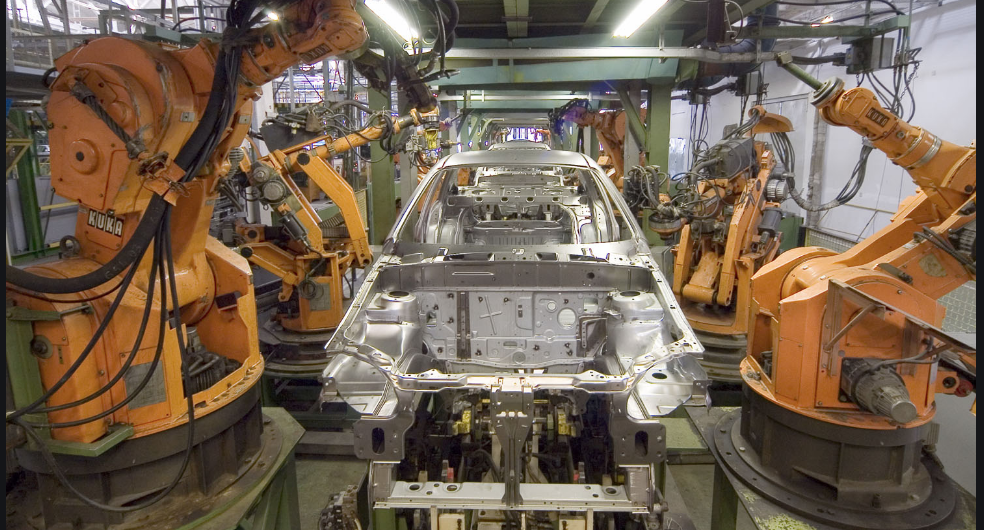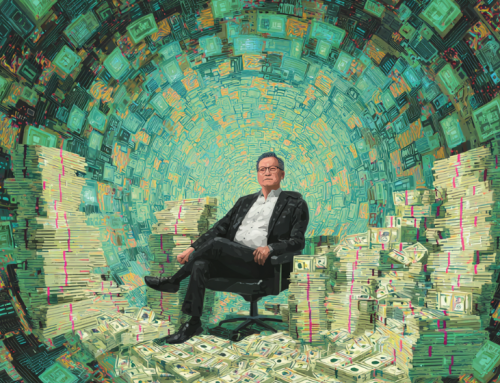
Robots offer an alternative for human laborers, but without a measured approach, replacing jobs could hurt economic recovery.
Experts Push for ‘Robust’ AI Approach to COVID-19, Automated Labor
A startling article on venturebeat.com featured Gary Marcus, a familiar figure to some insiders. Marcus has a Ph.D. in cognitive science from MIT and has been a professor of psychology and neural science at New York University for the past 20 years. Throughout that period, he has also written several books, and in 2015 he cofounded Geometric Intelligence, a stealth AI startup that was swiftly snapped up by Uber to serve as the foundation of its new AI Labs.
Marcus stepped down as head of Uber’s new unit after just a few months, and he later went on to found Robust.ai to build an “industrial-grade cognitive engine” for robots. In the article, Marcus states Covid-19 should be a wake-up call for all AI workers.
Speaking at the virtual Intelligent Health AI conference recently, Marcus lamented decades of missed opportunities to build a more robust artificial intelligence, arguing that too much attention has been placed on AI technologies that don’t really help the world in any meaningful way.
“We would like AI that could read and synthesize the vast, quickly growing medical literature, for example, about COVID-19,” he said. “We want our AI to be able to reason causally, we want it to be able to weed out misinformation. We want to be able to guide robots to keep humans out of dangerous situations, care for the elderly, deliver packages to the door. With AI having been around [for] 60 years, I don’t think it’s unreasonable to wish that we might have had some of these things by now. But the AI that we actually have, like playing games, transcribing syllables, and vacuuming floors, it’s really pretty far away from the things that we’ve been promised.”
When Marcus says vacuuming floors he means using the AI-driven bots to clean up grocery store aisles and assist in hotels or hospitals. It may be pedestrian to AI experts but it’s a big help to manual labor.
One of the underlying issues, according to Marcus, is that we’re putting too much focus on deep learning.
“To understand how to bring AI to the next level, we first need to understand where we are, and where we are right now is in the era of deep learning, where deep learning is the best technique, and the dominant technique, and maybe one that’s getting too much attention,” Marcus said.
Marcus clear states in the article how he would define the problem with AI not responding top the COVID-19 crisis and why he thinks that happened.
Marcus also reiterated points from his Rebooting AI book that was published last year, noting that the AI world needs to refocus its efforts on a more hybrid “knowledge-driven” approach. One that incorporates deep learning, which is good at some types of learning but “is terrible for abstraction,” and classical AI, systems capable of reasoning and encoding knowledge.
The explanation Marus offers about how to fix the issue is equally fascinating and worth your time to read it at the link below.
AI Economic Recovery Gets Congressional Hearing
Part of the reason work is getting done during the pandemic is the use of high tech and remote working from home. And while AI is assisting in that effort, at least one think tank says too much AI may not be a good thing. The McKinsey Global Institute predicts AI will drive GDP growth around the world in the decades ahead, but studies also find that automation in the workplace is expected to impact Black or Latinx people the most since they make up a larger percentage of the service economy than other groups.
Certain cities, states and regions are also expected to be disproportionately impacted by the proliferation of AI. About one in three jobs in the U.S. may require some form of retraining due to automation, according to the OECD. On the business side, a KPMG report released last year urged company executives to take AI-driven job loss seriously and to consider ways to retrain or reskill workers.
The studies say AI has the potential to improve human lives and a company’s bottom line, but it can also accelerate inequality and eliminate jobs during the worst U.S. recession since the Great Depression. Members of the House Budget Committee held a hearing recently to discuss the impact of AI on economic recovery, the future of work and the federal budget.
Expert witnesses recommended approaches that ranged from giving people lifelong “upskilling” accounts, to creating regional investment districts and portable benefits.
MIT professor and economist Daron Acemoglu warned the committee about the dangers of excessive automation. Acemoglu recently found that every robot replaces 3.3 human jobs in the U.S. In a working paper published by the National Bureau of Economic Research, Acemoglu detailed how excessive automation looks for ways to replace workers with machines or algorithms but produces few new jobs.
Companies are currently incentivized by a U.S. tax code that taxes capital investments at a lower rate than human labor. One example is replacing a McDonald’s worker with a touchscreen. Automation has been a drag on the U.S. economy, Acemoglu asserts, potentially slowing market productivity, and failing to lead to higher wages for low- and middle-class workers.
“AI is a broad technological platform with great promise. It can be used for helping human productivity and creating new human tasks, but it could exacerbate the same trends if we use it just for automation,” he said. “Excessive automation is not an inexorable development. It is a result of choices, and we can make different choices.”
Khari Johnson wrote this interesting article which includes some of the congressional responses to Professor Acemoglu. It is a slippery slope any time politicians get involved with science. But in this case, politics, science, and AI may be the only way to dig out of this pandemic and the destruction it has left on our economy.
read more at venturebeat.com







Leave A Comment